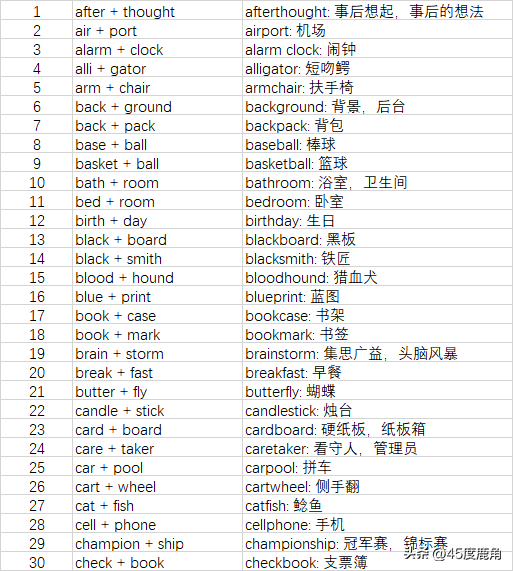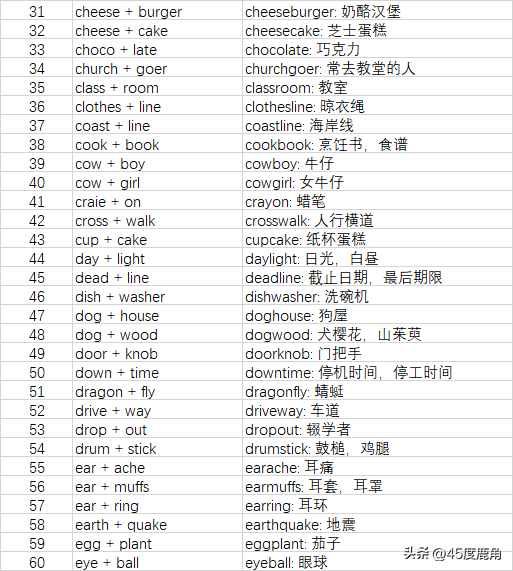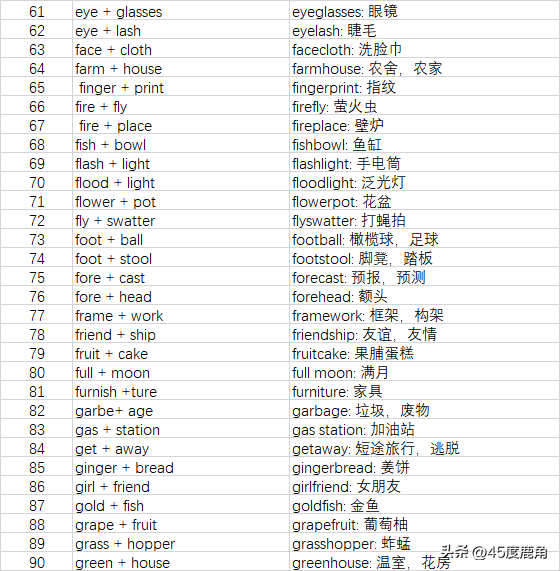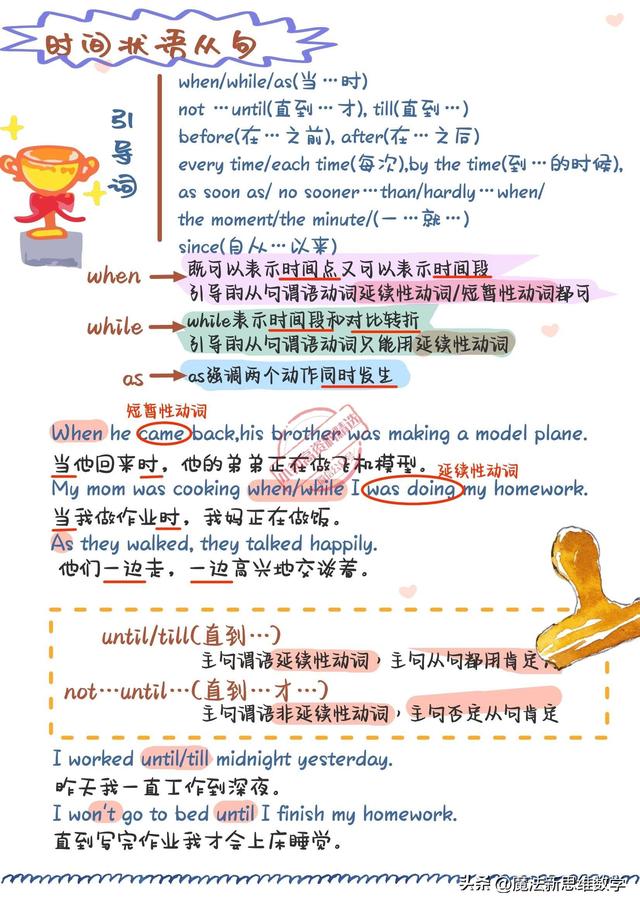第24期:Where should we eat?我们在哪里吃饭?
「晨读音频」


Hey guys! Welcome to my channel, I’m Grace. Good morning!
欢迎来到我的频道,我是Grace老师,早上好呀!
As we all know, bread is the staff of life. Today we’re gonna listen to a dialogue about eating at a restaurant and giving some great recommendations and suggestions.
我们都知道啊,民以食为天。今天我们要听一个关于谈论去餐馆吃饭,并给出一些很棒的建议和意见。
However, when we go to a restaurant to eat, we need to make sure that the food there is safe enough since we do not want to have any experience of food poisoning that will make you feel very sick.
然而,当我们打算去餐馆吃饭的时候,我们要确保那里的食物是安全的,因为我们都不想有食物中毒的经历,那可是非常难受的。
Okay, now let's see if anyone gets any food poisoning in a restaurant in this dialogue.
好的, 现在让我们看看在这个对话中有没有人在餐馆里食物中毒了。
「对话文本」
A: Do you two have any plans for the evening?
晚上你们俩有什么计划吗?
B: We were thinking of checking out a restaurant in the neighborhood. Do you have any suggestions?
我们正考虑去试吃附近的餐厅。你有什么建议吗?
A: I know this really nice Italian place. The food is fantastic, and the d′ecor is beautiful. I’d recommend giving it a try.
我知道一家非常棒的意大利餐厅。餐品非常美味,装饰很漂亮。我推荐你们去试下。
C: Actually, I’m not all that crazy about Italian food; I’m in the mood for something a bit lighter.
其实,我对意大利食物并不是很喜欢;我想吃清淡一点。
A: In that case, I know a great little bistro. They make a really tasty seafood platter; the fish is outstanding.
要是那样的话,我知道一家很棒的小酒馆。他们做的海鲜拼盘非常美味。鱼非常赞。
B: It sounds fantastic, but I’m allergic to seafood, so…
听起来很不错,但我海鲜过敏,所以……
A: Okay, well, let me think. . . Oh, I know this great little place. It’s just a hole in the wall, but they do the most amazing sandwiches. You gotta give them a try.
好吧,我再想想……噢,我知道一个很好的小地方。店面只有一丁点儿,但他们做的三明治非常令人惊喜,你得去试看看。
C: Ella, you took me there last time I visited, and I got food poisoning, remember?
上次我来的时候你带我去过,我食物中毒了,还记得吗Ella?

「重要发音技巧」
Welcome back. Now let’s learn some important tips of pronunciations.
欢迎回来。现在让我们学习一些重要的发音技巧。
1. 语调
语调是帮助我们表达各种思想感情的重要途径,英语语调的基本类型有降调、升调和平调。
降调表示说话人的态度肯定、意思完整、语法结构独立。
升调表示说话人的态度不肯定、意思不完整、语法结构不独立。
平调一般用于直接引语后面,表述所说的话,音高没有高低的变化。
在意义比较复杂的句子或意群中,往往结合了三种基本语调,构成升降调或者降升调,而使语调变得复杂。
美国英语比英国英语更平民化,它的语调也更趋于自然,较少故意的抑扬顿挫;英国英语语调则起伏较大。不同的语调可以表示说话人不同的态度和不同的隐含意思。英语中同一句话采用不同的语调会产生截然不同的语意概念。
例如:“yes”,若用降调,表示说话人对所回答的问题十分确定;若用升调,表示对问题有疑问。语调具有强烈的感情色彩,它使语言更丰富、更有表现力。
那么在本节课中我将着重讲解升调和降调。
(1) 降调
例如文章中有一句话:It sounds fantastic. ↘️听起来很不错。
(2) 升调
用于一般疑问句。正如文章开头:Do you two have any plans for the evening? ↗️ 晚上你们俩有什么计划吗?
2. 弱读
弱读是一种发音规律,就是元音不饱满时,所有的元音都弱读成 /ə/。
文章中"You gotta give them a try.",这里的gotta后面的a是元音但不饱满,弱读为/ə/,所以gotta 读作为[ˈɡɑːtə]。
gotta = have got to/must/ have to 不得不,必须
I gotta go home. 我得回家了。
但是第三人称单数不能直接用gotta, 因为he, she, it 等第三人称单数后面加的是has got to,所以我们可以用:
he has gotta = he’s gotta
she has gotta= she’s gotta
gonna = going to
be going to
I’m going to take a shower.
= I’m gonna take a shower.
我要去洗个澡。
wanna= want to
I want to go home.
= I wanna go home.
我想回家。
注意:"wants to"不等于"wanna",当主语是he/ she/ it 等第三人称单数时,只能用wants to。
注意:gotta, gonna, wanna都是美语中非正式的用法。
如果你要写论文,报纸新闻等较为正式的文章是不可以这样使用的,必须把所有单词写完整。
例如:You gotta give them a try. 必须写成“You have got to give them a try. ”。
「核心单词掌握」
1. check out 看看; 退房
check [tʃek]
It means “look at” or “go and see”.
指的就是看看或者去看的意思。
例句:
I’m going to check out the new shopping mall this weekend.
这个周末我要去新的购物中心看看。
check out 退房
反义词:check in 登记入住
When you check out of a hotel where you have been staying, you pay the bill and leave.
当你在你入住的酒店退房的时候,你(会)付款离开。
2. bistro [ˈbiːstroʊ] n. 小酒馆
It means a small informal restaurant.
指的是小型非正式的餐馆。
例句:
Instead she took me to a quiet bistro with a private table. We had a couple of mixed drinks and I enjoyed the meal tremendously.
相反,她带我去了一个安静的小酒馆,而且在一张隐蔽的餐桌旁,我们喝了两杯鸡尾酒,享受着愉快的午餐。
3. tasty [ˈteɪsti] adj. 美味的,可口的
同义词:delicious, yummy, yum
例句:
These pancakes made by my mother are really tasty.
我妈妈做的这些煎饼非常好吃。
4. d′ecor [deɪˈkɔːr] n.(建筑内部的)装饰布局,装饰风格
It means the style in which the inside of a building is decorated.
指的是建筑物内部的装饰风格。
However, there is a word that we usually see is:
但是我们较为常见的单词是:
decoration [ˌdekəˈreɪʃn] n. 装饰品,装饰
So, what’s the difference between d’ecor and decoration?
那么d’ecor 和decoration有什么区别?
decoration强调的是具体装饰物件,而d’ecor更倾向于装饰风格的含义(中式风格,北欧风格等等)。
例句1:
The choice of d’ecor was inspired by a trip to India.
选用这种装饰格调是在一次印度之行中得到的启发。
例句2:
They are putting up decoration for the festival.
他们在为节日布置装饰品。
5. allergic [əˈlɜːrdʒɪk] adj. 过敏性的
It means affected with or caused by allergy.
指的是由过敏影响或导致的。
be allergic to... 对……过敏
例句:
Find which food you are allergic to by a process of elimination.
用排除法找出你对哪种食物过敏。
6. poisoning [ˈpɔɪzənɪŋ] n. 中毒
It means the fact or state of having swallowed or absorbed poison.
指的是吞下或者吸收有毒物质的实际情况或者状态。
food poisoning 食物中毒
If you get food poisoning, you become ill because you have eaten food that has gone bad.
如果你食物中毒了,你会生病因为你吃了变质的食物。
例句:
He had suffered a serious case of food poisoning over the Christmas holidays.
在圣诞假期里,他经历了一次严重的食物中毒。
「实用口语表达」
1. Actually, I’m not all that crazy about Italian food.
其实,我对意大利食物并不是很喜欢。
not all that crazy about... (对......的喜欢) 没那么疯狂
Well, this is a kind of an interesting phrase which is a polite way of saying you don’t like something. I have got some examples that will help you understand the meaning.
这是个有趣的短语,而且是很礼貌的方式去阐明你不喜欢的事物,我这儿有一些例子可以帮助你理解意思。
例句:
I’m not crazy about jazz music. Can I change the song?
我不喜欢爵士乐。我能换首歌吗?
2. in the mood for... 有心情去做/想做某事
In this dialogue, the man said “I’m in the mood for something a bit lighter.”.
在对话中,男的说“我想吃清淡一点”。
例1:
We always eat hamburgers for dinner. I’m in the mood for something different.
我们晚餐总是吃汉堡包。我想吃点不同的东西。
例2:
I am not in the mood for a horror movie.
我没心情看恐怖电影。
「今日所学回顾」
1. 发音技巧:
语调:降调 It sounds fantastic. ↘️升调 Do you two have any plans for the evening? ↗️
弱读:gotta = have got to/must/ have togonna = going towanna = want to
2. 核心词汇:
check out 看看bistro [ˈbiːstroʊ] n. 小酒馆tasty [ˈteɪsti] adj. 美味的,可口的d′ecor [deɪˈkɔːr] n.(建筑内部的)装饰布局,装饰风格allergic [əˈlɜːrdʒɪk] adj. 过敏性的poisoning [ˈpɔɪzənɪŋ] n. 中毒
3. 口语表达:
not all that crazy about... 不喜欢......in the mood for... 有心情去做/想做某事
That’s all for today. Thanks for listening. See you next time and have a great day!
我们这期的学习就到这里了,感谢收听,下期再见。祝愿大家度过美好的一天!

懒人英语晨读
陪你学英语

- 0000
- 0000
- 0000
- 0000
- 0000













